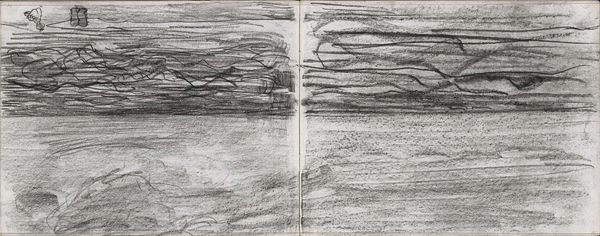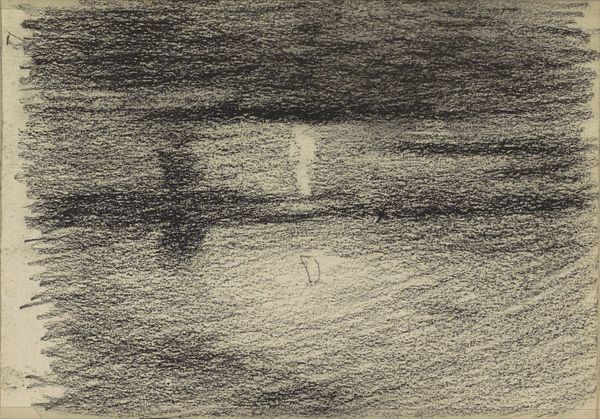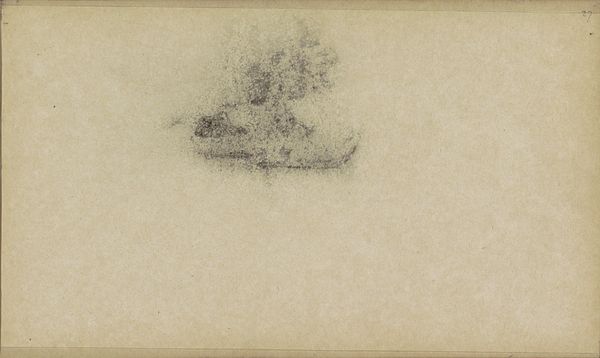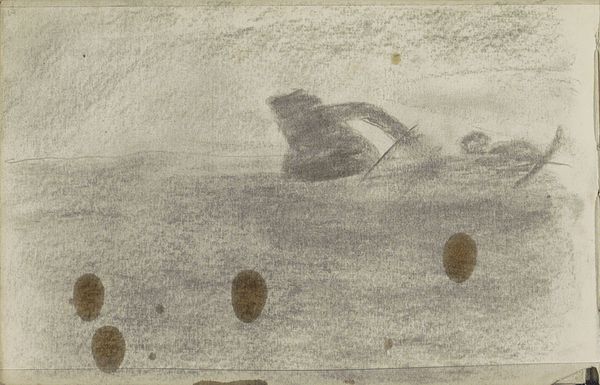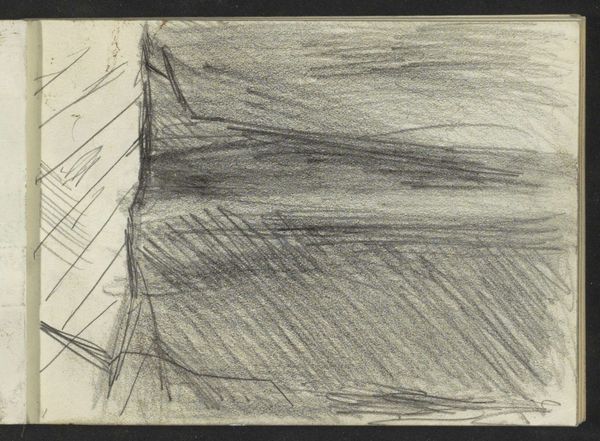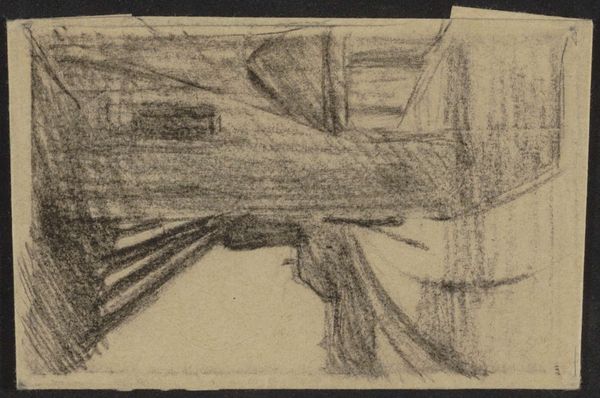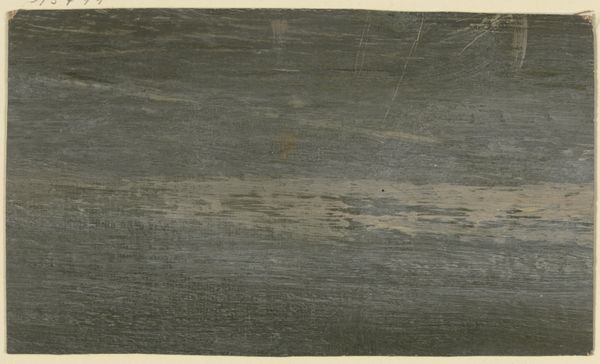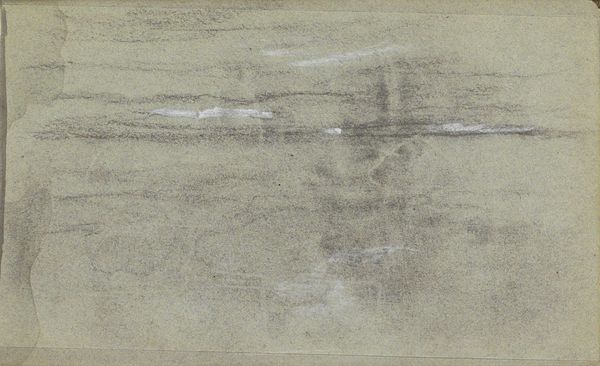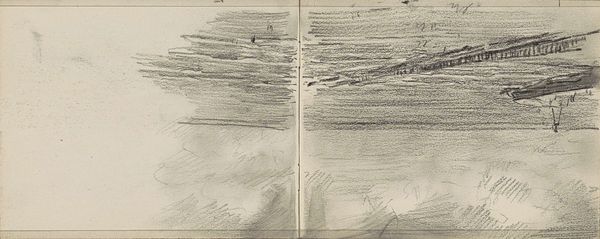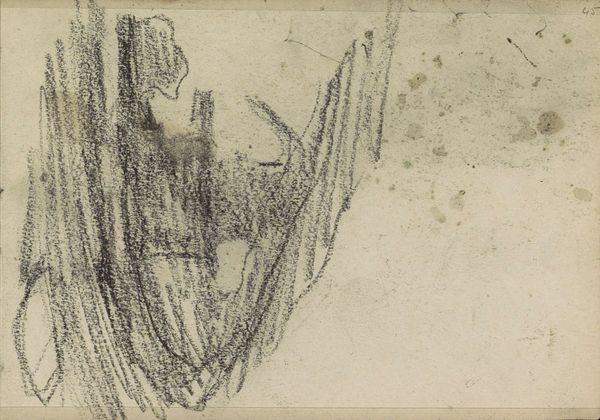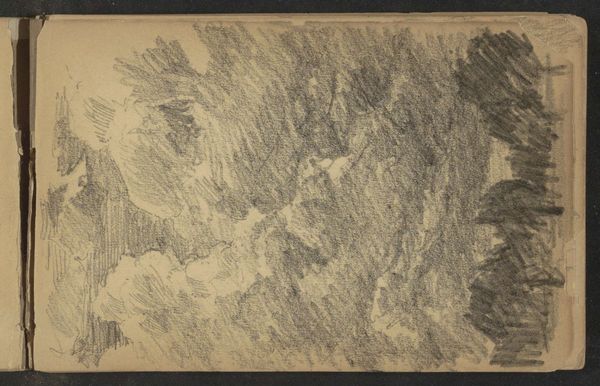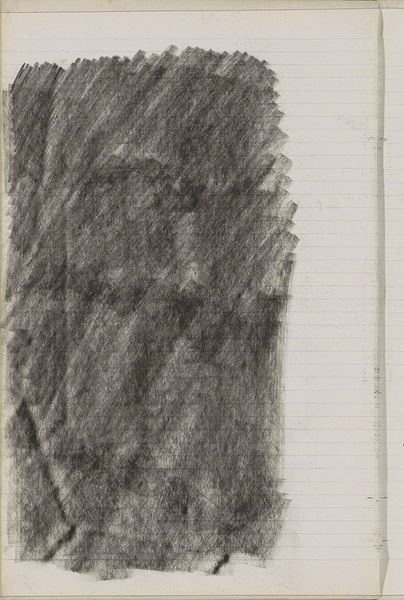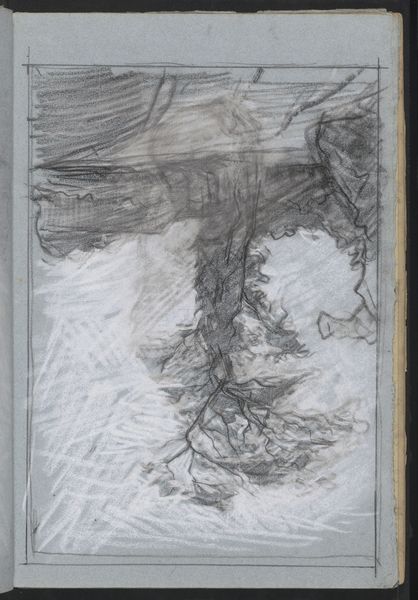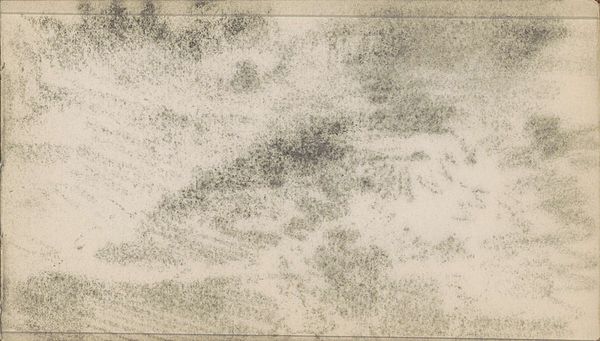
Copyright: Rijks Museum: Open Domain
Curator: This is Willem Witsen’s "Rivierlandschap," or "River Landscape," likely created between 1906 and 1909. It’s a drawing executed with pencil and pen on toned paper. Editor: There's a compelling, almost oppressive atmosphere. The darkness pressing down from above makes me think of environmental degradation and human encroachment on nature, issues relevant even then, don’t you think? Curator: Absolutely. The rapid industrialization of the Netherlands at the time undoubtedly cast a shadow—literal and figurative—over the natural world, reflected here. Consider the Symbolist movement that permeated the Netherlands back then; these kinds of motifs can't be separated from sociopolitical concerns, urbanization, poverty, the plight of the working classes. Editor: You’re right. It feels very of the time, especially because of that stark dark blotch. It dominates the scene. What do you make of it? It could be a large tree but, with my understanding, the ink blob itself suggests something ominous—perhaps society obscuring a vital view? Curator: It might even signify the rise of the 'black ships', symbolic of industrial transport and perhaps also echoing images from Dutch naval history and colonial exploitation. This artwork as resistance. Editor: Fascinating to see so much encoded in what at first seems like a simple river drawing. There are hand-drawn lines visible from its sketchbook binding, grounding it as part of a tangible process, as an expression and observation combined. It lends intimacy to what could have been a starker message. Curator: Precisely. We should remember that artistic expressions never exist in a vacuum. Considering societal developments allows a deeper appreciation for the layers of meaning contained within it. Editor: It’s really rewarding to look beyond just what is represented. I will be walking away seeing symbols of concern within such simplicity. Curator: The layered historical meanings woven into this simple image invite us to reconsider what we may take for granted, not just about art, but about our connection with nature, and about society as a whole.
Comments
No comments
Be the first to comment and join the conversation on the ultimate creative platform.
